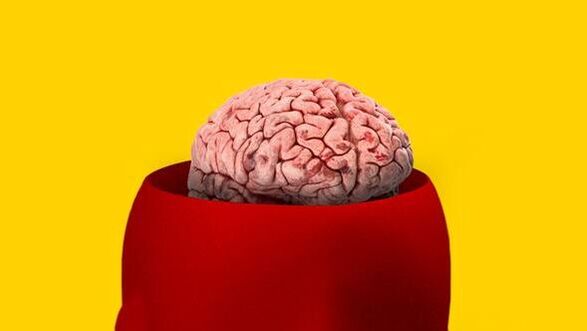|
Feature by Simran Bharadwaj Image via Freepik The new year tends to be all about forgiving and starting fresh, letting things go to be on better terms with friends or family members. As a result, there may feel like there is pressure to do so despite the trauma that some individuals may have caused. However, forgiving does not mean forgetting what someone has done and allowing them to keep pushing your boundaries. You can forgive someone and still:
Forgiving a person can be therapeutic and healing for you despite the trauma that they have caused. It allows for you to understand the impact this individual had on your life and why you need to maintain your boundaries with them. It can help develop healthy relationships in the future because you are more attentive to your needs within a relationship. Forgiveness can lead to inner peace which can positively impact physiological wellness and can offer protection against upsetting relationships in the future. It definitely is not easy to forgive someone who you know has wronged you, however there are five skills that can help with finding the right balance between forgiving and maintaining your healthy boundaries. Skills for Forgiveness: 1. Acceptance Acceptance does not mean accepting defeat. It means understanding and accepting the situation at hand. This allows for you to alter your view about a situation and accept that there is nothing you can change about the past while being able to maintain healthy boundaries in the present 2. Emotional Regulation It is important to recognize the emotions that you are feeling rather than suppressing them within. This will help to manage your emotions rather than allowing them to take over your body. 3. Shifting Perspectives Mindfulness practices can assist in standing back and observing your thoughts and feelings. This awareness of what you are feeling can allow for your mind and body to create a shift in the way you think about a situation. 4. Empathy and Compassion Empathy allows you to understand another’s emotions. Understanding how the other might be thinking and feeling can be helpful towards a path of forgiveness. 5. Radical Responsibility Responsibility requires you to be accountable for your actions, thoughts and feelings. This can mean admitting to your own mistakes in a situation. Recognizing unhealthy behaviors can help prevent you from repeating them. Regaining control of how you act and react to given situations can help allow you to see the benefits of forgiving others while maintaining the boundaries that you need in order to have meaningful relationships. These techniques can be used with friends as well as family members. Individuals often feel that they are required to forgive family because there is “no bond greater than blood,” however maintaining boundaries is a healthy aspect of being able to forgive someone and let go of the anger and resentment you may have. AuthorSimran Bharadwaj is a pre-professional licensed mental health therapist in New York City. You can contact Simran at [email protected] and read more blog posts at www.mwr.nyc.
0 Comments
Feature by Nikita Fernandes Image via Unplash ADHD or attention-deficit/hyperactivity disorder is a state of neurodivergence in which people's executive functioning skills are impacted differently from people without ADHD. According to the National Institute of Mental Health, people with ADHD experience inattention, hyperactivity and impulsivity. There was recently a surge on the tiktok platform of people claiming they have ADHD. Although the symptoms of ADHD are recognizable in childhood, some people go years without being diagnosed and find out late into adulthood. This can bring about an identity shift in how they've previously seen themselves. There is a lot of research that exists about ADHD during childhood but the research looking at adult ADHD is still scarce.
Feature by Simran Bharadwaj Image by Freepik Speaking from personal experience, meditation is not for everyone. It can be difficult to find the time, or a quiet place to sit and practice breathing exercises and clearing your mind. It may feel like you have too many racing thoughts that you can’t clear from your mind when trying to start meditation. However, meditation can benefit emotional balance and attention by providing a sense of calm and peace. Meditation is not just the typical relaxing sounds that require you to have the ability to clear your mind. There are also many meditation resources that can be used to fit your needs whether you are a beginner and brand new to meditation, or want to focus on more specific areas. Meditation can include breathing exercises that help you release tension and stress from all areas of your body. Progressive muscle relaxation is in the category of meditation and mindfulness that can help individuals focus on each part of their body and release tension that they may not even know they are carrying. Meditation Apps for Meditation: Insight timer is a free app that provides meditation music, as well as guided meditation. Recordings are of varying lengths and there is even a customizable meditation timer that you can change depending on how much time you have available. The app has focuses on different categories including sleep, anxiety, and stress Calm provides sleep stories, breathing programs and relaxing music. The app provides many different programs that can help fit your needs, and just like Insight timer, it is customizable depending on time you have available and provides guided meditation in various topics. This app is $12.99/month. YouTube Channels for Meditation: Goodful is a very useful channel that has meditation videos ranging from five to 15 minutes. The videos are all guided and has categories such as self-love, sleep, anxiety, and even a video specifically for beginners. Even if you are unsure whether meditation can help you, I would recommend turning to short guided meditation videos for primary exposure to meditation. Therapeutic techniques may not always work the first time around. Try finding the right meditation videos or recordings that work for you! AuthorSimran Bharadwaj is a pre-professional licensed mental health therapist in New York City. You can contact Simran at [email protected] and read more blog posts at www.mwr.nyc.
Feature by Simran Bharadwaj  Second generation individuals, the children of immigrant parents, may feel a disconnect when trying to talk to their parents about their mental health. Over the last two years, due to the COVID-19 pandemic families were at home relying on each other to help them through this strange new world. Children may have attempted to talk about their mental health with their parents. However, there may have been a disconnect between parent and child, as parents were also stressed with the changes in their lives. Parent-child language discordance can also contribute to children not trying to connect or communicate with their parents when they need help. Since there are so many reasons for disconnects to occur, it is important to understand why the disconnect occurs and how to try and bridge the communication gap. In some minority communities there can be a lack of cultural competence and therapeutic understanding because therapy and mental health are considered a taboo topic. There are increased barriers to culturally appropriate mental health care in areas with large ethnic minority populations, and high rates of poverty. This is due to the limited access to healthcare as well as the language barrier with minority populations. Even for children who are no longer living in poverty, mixed messages about mental health may have been passed down through their parents. As a result of this constant disconnect, it can become difficult to heal. Mentalization based therapy is a therapeutic technique that can help greatly in these situations. Mentalization is the ability to think about thinking, meaning that individuals learn to observe one's thoughts and consider what someone else’s thoughts might be. This therapy modality can help repair relationships between parent and child when neither feel as though they are able to effectively communicate what they are thinking and feeling. Learning the other’s place in their own mental health journey as well as their understanding of mental health can be crucial in unpacking the other's response to you, in this case the response of parents to their children. AuthorSimran Bharadwaj is a pre-professional licensed mental health therapist in New York City. You can contact Simran at [email protected] and read more blog posts at www.mwr.nyc.
Feature by Nikita Fernandes Via Pixabay Narrative Therapy has emerged as one of the most powerful types of therapy to support minority communities. It has gained popularity in 2022 along with the rise of movements such as the Black Lives Matter and the focus on mental health after the pandemic. Narrative therapy is relatively new. It was developed in the 1980's by Michael White, an Australian social worker, and David Epston, a family therapist from New Zealand. It gained traction in the United States in the 1990's.
Narrative therapy is a nonpathologizing, empowering and collaborative experience for clients who hold minority identities. The empowering nature of this therapy can be experienced through nudging clients to reframe their past experiences, gain control over their present and shape a better future. Narrative therapy uses prompts to have client reflect over the stories they tell themselves about their life. For example, a therapist might ask a client to write about their past struggles and highlight what helped keep them afloat. This strengths based approach can help remind clients that they are much more resilient than they believe. Feature by Nikita Fernandes Via Pixabay Richard Schwartz created the Internal Family Systems (IFS) model to work with clients who held conflicting views of themselves. He explained these conflicts as having various parts within ourselves. As human beings, we are made up of different parts that serve specific functions. Internal Family Systems is a powerfully transformative, evidence-based model of psychotherapy. The mind is considered to be naturally made up of multiple sub-personalities or families within each individual’s mental system. These sub-personalities take on different roles, such as an inner critic or inner child, and consist of wounded parts and painful feelings like anger and shame.
Repercussions of the COVID-19 Pandemic Related Stressors on LGBTQ+ Young Adult Mental Health6/8/2022 Feature by Nikita Fernandes Via Pixabay The COVID-19 pandemic took the whole world by surprise and wreaked havoc on a global scale. Although the pandemic presented many physical health implications, the pandemic also exacerbated the stressors that sexual and gender minorities feel on a day-to-day basis. The COVID-19 pandemic stressors have had multiple mental health repercussions for LGBTQ+ youth who are already receive less support. The psychological effects of quarantine have been related to an increased incidence of mental health issues such as post-traumatic stress disorder, confusion, rage, as well as more despair. During the quarantine period of the COVID-19 pandemic, LGBTQ+ young adults were forced to stay in homes with negative family climates which had a detrimental effect on their mental health (Gato et al., 2020). Many LGBTQ youths may not have disclosed their sexual and gender identities to their family yet, so they lack support and acceptance from this primary socialization group (Gato et al., 2020). LGBT youth feel “stuck at home with unsupportive parents” and face unfavorable factors such as self-quarantine, limited access to LGBT-specific campus resources, and distance from an affirming social network or chosen family (Gonzales et al., 2020). Therefore, it is critical to understand how the COVID-19 pandemic impacted LGBTQ+ young adult lives.
.  William James, the father of psychology, used magnetic force as a metaphor to describe human connection and love. He explained that if we took a magnet and hovered it over safety pins the pins would connect to the magnet. And, if you put a paper on the magnet and hovered it over the same safety pins - the pins would still gravitate to the magnet and connect. For the pins, there is no difference between being connected directly to the magnet, or if there is a paper between itself and the magnetic force. However, humans are different.  Baby has arrived! The parents are elated with the new addition to the family. The baby takes in all the love showered onto him/her. When an infant is born he or she does not have a sense of self. He is not aware of where he ends and others begin; there is a bubble around him/her and mother. According to Margret Mahler, the task for the newborn infant is to develop his sense of self as an individual and separate person. At first, the infant is self-absorbed and perceives him/herself and mother as one. Then, the infant begins to be alert and curios about the world. Once the baby begins to crawl, he/she can actively experiment with being separate from the mother. Finally, the child recognizes that his mobile ability separates him from the mother. Yet, the baby still wants his mother near him as he ventures out. The mother’s reaction, to the child’s tentative experimentation with exploring the world, will determine the development of an individual self in the child. If the mother responds by being impatient with the child’s uncertainty, or with anger toward the child’s need for separateness, the child will fail to develop a strong sense of self. A child whose mother is unreliable, intrusive, and emotionally unavailable will develop fears of engulfment or abandonment. These fears will seriously interfere with the ability to be intimate in later years. The relationship between mother and child is the “prototype” for later intimate relationships. Since the attachment between the mother and child is the first intimate experience, good enough parenting establishes the ability for later intimate romantic relationships. Intimacy is dependent on the person’s ability to self-disclose and share personal information with the intimate other. Intimate relationships call on the person’s willingness to be vulnerable and trust that their partner will not abandon them. Most importantly, the person must trust his or her sense of self, that he or she will not completely collapse and lose their sense of self. Eric Erikson postulated that a healthy development trajectory includes the achievement of intimacy. If one does not resolve the developmental crisis of intimacy versus isolation, by forming close romantic relationships, their development to later stages are hindered. However, Erikson explains that in order to be intimate, a person first needs to have a self. As he quotes, “To be able to share a WE, we must have sense of I” (Erikson, 1984). The core of the psychic fear of intimacy is the fear of merging and engulfment by the other. Weak ego boundaries and the inability to maintain a sense of self is a threat to the self-identity and being intimate with a partner is a danger. As mentioned above, in order to be intimate one needs to have the capacity to be vulnerable, thereby loosening his or her boundaries. For a person with a poor sense of self, loosening his or her boundaries means a total loss of self. The paradox of intimacy is the ability to simultaneously remain separate yet connected. Intimacy requires a level of merging. But, for someone who cannot maintain his or her separate self, intimacy becomes impossible. The person fears that if they open themselves up to the other person, they will merge and be engulfed by their partner. Therefore, avoiding intimacy is a defense against the loss of self. Another area to consider is when one feels that their partner is merging into them. The partner’s genuine and caring attempt to be intimate is seen as an infringement on his or her autonomy. As one partner moves toward deeper intimacy, the other partner resists. (sexual acting out (i.e. infidelity) can potentially be an attempt to resist the deeper intimacy). It is important to note that everyone struggles with the dilemma of engulfment and the desire for an intimate relationship. The capacity to be intimate is dependent on the extent of the dilemma. The ability to trust that one can maintain their own identity without fusing into their partner’s identity; opens the space for intimacy to flourish. AuthorSara Schapiro-Halberstam, LMHC is a licensed mental health counselor in NYC, where she provides individual counseling and intimacy counseling. You can contact Sara at [email protected] and read more blog posts at www.mwr.nyc “Do you go to the gym because you hate your body? Or do you go to the gym because you love your body?” Lisa, a registered dietitian and the founder of The Well Necessities, recently asked this question; I was intrigued. On the surface, as long as I am going to the gym, who cares why I go to the gym. But, emotionally and psychologically the answer to this question changes my experience and my relationship with fitness and healthy living. I can head to the gym with excitement, passion, and joy, or feel like I am being pushed or dragged toward the gym door. This question applies to many areas of our life, particularly in romantic relationships. We need to ask ourselves; why do we do what we do? Is it to avoid a consequence? Or are we driven by self-love? We spend much of our life making decisions based on avoiding consequences. Can you stop and ask yourself “Why do I (fill in the blank)?” Do you buy flowers because you love your wife/husband and the two of you as a couple? Do you buy flowers because you know she/he will be upset? Are you going to therapy to heal from your sexual transgressions because your relationship is important to you? Are you going to therapy to heal from a sexual transgression because you can’t stand the guilt you’re living with? Are you spending time with your kids because you cherish them? Are you spending time with your kids because you do not want to be a bad father/mother? The behavioral outcomes (i.e. you bought flowers) are the same, yet the emotional experience is vastly different. If we make decisions and do things because we are avoiding consequences, we never truly connect to the emotional benefits of our actions. Making a choice out of willingness - rather than avoidance - allows us to be immersed in the experience. Most importantly, the choice will feel natural and effortless. AuthorSara Schapiro-Halberstam, LMHC is a licensed mental health counselor in NYC, where she provides individual counseling and intimacy counseling. You can contact Sara at [email protected] and read more blog posts at www.mwr.nyc |
Authors
Archives
February 2023
Categories
All
|







 RSS Feed
RSS Feed